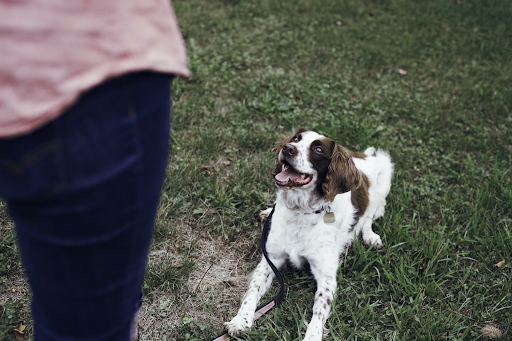Dogs have been our loyal companions for thousands of years, offering love, companionship, and often a sense of security. However, not all dogs exhibit perfect behaviour, and sometimes, they may develop behavioural issues that can be challenging for both the dog and their owners. This is where a dog behaviourist comes into play.
So, here, we will explore the role of a dog behaviourist and what you can expect from their professional training.
The Role of a Dog Behaviourist
A dog behaviourist is a trained professional who specializes in understanding and addressing the behavioural issues exhibited by dogs. These professionals play a crucial role in helping dogs and their owners overcome problems such as aggression, anxiety, excessive barking, chewing, and various other behavioural concerns. Their goal is to improve the overall well-being of the dog while ensuring a harmonious relationship between the dog and its owner.
Assessment and Evaluation
One of the first things you can expect from a dog behaviourist is a comprehensive assessment of your dog’s behaviour. This evaluation typically includes observing the dog’s behaviour, talking to the owner about the dog’s history, and conducting interviews to understand the context of the problem. This assessment helps the behaviourist identify the underlying causes of the dog’s behaviour issues.
Customized Training Plans
Once the assessment is complete, the dog behaviourist will create a customized dog training program tailored to your dog’s specific needs. This plan takes into account the dog’s temperament, breed, age, and the nature of the behavioural problems. It outlines the steps and techniques that will be used to address the issues and modify the dog’s behaviour.
Behaviour Modification Techniques
Dog behaviourists are trained in a variety of behaviour modification techniques. These techniques are designed to address specific issues and encourage positive behaviour in dogs. Some common techniques include:
- Positive Reinforcement: This involves rewarding the dog when it exhibits desired behaviour. It can include treats, praise, and affection.
- Counterconditioning: This technique aims to change a dog’s response to a particular stimulus, such as fear or aggression, by associating it with something positive.
- Desensitization: Gradually exposing the dog to the trigger of its fear or aggression in a controlled and systematic manner to reduce its reaction.
- Crate Training: Teaching a dog to view its crate as a safe and comfortable space.
- Behavioural Desensitization: Exposing the dog to the problematic behaviour in a controlled environment to modify its reaction.
Training Sessions
Dog behaviourist training includes working with both the dog and its owner. These sessions can be conducted in a controlled environment or even in the dog’s home, depending on the nature of the issues. The owner is actively involved in the training process to ensure that they can continue reinforcing the desired behaviours even after the behaviourist’s assistance ends.
Education and Support for Owners
A significant part of a dog behaviourist’s role is educating dog owners about canine behaviour and training techniques. Owners are taught how to communicate effectively with their dogs, understand their body language, and respond appropriately to various situations. This education is crucial for long-term success and helps owners maintain a positive and healthy relationship with their pets.
Monitoring and Follow-Up
The journey towards resolving behaviour issues doesn’t end with the dog behaviour classes. A good behaviourist will provide ongoing support and monitoring to ensure that the dog’s behaviour continues to improve. They may schedule follow-up sessions to track progress and make necessary adjustments to the training plan.
Conclusion
A dog behaviourist plays a vital role in helping dogs and their owners navigate behavioural challenges. Their expertise in assessing, diagnosing, and addressing various behavioural issues is invaluable in creating a harmonious and happy environment for both pets and their human companions.
When seeking the assistance of a dog behaviourist, owners can expect a customized training plan, education, and ongoing support to ensure that their furry friend is on the path to better behaviour and a fulfilling life.
By understanding the role of a dog behaviourist and having realistic expectations, dog owners can look forward to a positive transformation in their pet’s behaviour and a stronger bond with their four-legged family members.



